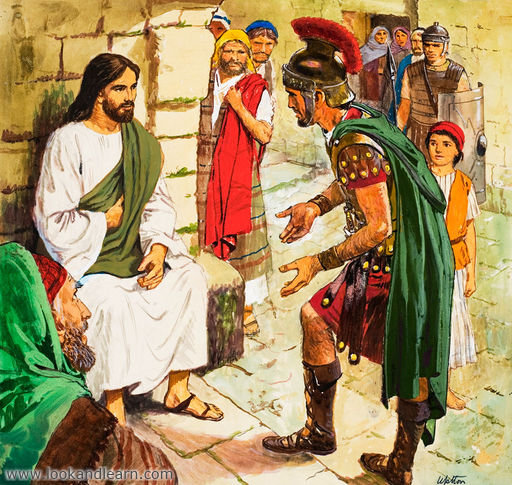
15 Dec 2013 by Tony Dibble-
Christianity is a universal religion. It is meant for all races. GOD shows no special favours to any ethnic group. His promise to Abraham was that all the nations in the world would be blessed through Abraham (Gen12:2 & 3; 17:4 & 5).
Though not often understood readily, GOD’s loving choice for Israel to be His people was not just for its own sake. He chose them to specifically be a testimony about Him. They were to be a light to the nations (Is 49:6) in order that the world would be saved through their example and message. GOD did not choose Israel merely as favourites. Israel was expected to pass on the relationship about GOD to other people groups.
One reason that Jonah initially refused the call of GOD was because he had to spread the gospel to a foreign race, the Assyrians, who were noted for their aggression and cruelty. The daily prayer of the Jew starts with words where he thanks GOD that he is not a Gentile (non-Jew).This ethnic–exclusivity initially pervaded Jonah’s prophetic ministry until he was convinced by GOD’s actions to end it, going on to preach at their capital (Jonah 3:1-3).The Jew-Gentile schism was not unique to Jonah but continues to this day in the minds of some of His people.
When GOD gave the Israelites the Promised Land to live in, He instructed them to expel the other people groups from the land. This He did in view of the abhorrent practices of its existing inhabitants rather than to their ethnicity (Lev 18:3-30).The location of Israel was between the world’s two major trade routes; one to the west, and the other to the east. That location was to be used as the centre, for the light of the world to shine from.
In the same way, GOD has chosen the church to pass the message of Christ’s salvation on, to the unsaved (Matt 5:13-16). The church will judge the world but only on the last day (1 Cor 6:2). The church is now to be used by the Holy Spirit as a vehicle to communicate the gospel to the unsaved (John 16:13-15). That is the role and true worth of the church. The church is neither an exclusive nor a closed social group: that is not its main purpose. The church is under GOD’s direction for GOD’s mission for the gospel to be be spread to all nations (Matt 28:18-20). All other objectives are secondary.
Christ’s disciples were (except for Judas) all Galileans and they were regarded by their contemporaries as being at the unfavourable end of the social pyramid (John 1:46; 7:5, 41, 52). Christ, though a Jew, grew up in Nazareth, a town in Galilee. The Galileans lived in Samaria, the northern kingdom of Israel which had broken away after King’s Solomon’s reign. Jews were in the southern kingdom and they considered the Samaritans outcasts. Jews maintained that the Samaritans lost their racial and cultural purity through the infusion of foreign bloodlines and contact. It was no accident that Christ gave the matter some perspective when he narrated the parable of “The Good Samaritan” (Luke10:30-37), pointing out the humanitarianism of the Samaritan when compared to the self-interest of the “sanitised” priest and a Levite. Similarly, Christ ministered to a Samaritan woman at the well one mid-day (John 4:9). This was very much against the social order of the era.
When Christ chased out the money changers and their merchandise from the outer courts of the Temple (the only times when he seemed aggressive) it must have appeared to be ironical. This is because the outer courts were reserved for Gentile worshippers(Philip Yancey, What’s So Amazing about Grace, p 153).Christ, it seems, was making it more accessible for the Gentiles to approach the temple of GOD by doing so. It appears that the Israelites, who were chosen to bring the message of GOD to the Gentiles, had blocked the Gentiles out from worshipping Him by siting their trading desks and livestock in the temple’s outer courts.
The faith of the Roman centurion was perhaps the most intriguing narrative during the ministry of Christ. Christ praised the centurion for having exceptional faith, more than any one He had encountered in all Israel (Matt 8:10). Christ volunteered to visit the centurion’s residence in order to heal the victim. This was totally against the custom of the day since Romans were despised as pagan invaders and extortionist overlords in the Promised Land. Yet it was a Roman, and not a Samaritan nor a Jew, who had the greatest testimony of faith in Christ in those times.
There was a woman in the land of Canaan (non-Israelite) whose daughter was demon-possessed. Because of her faith in Him, Christ healed her daughter (Matt 15:21-28).Canaanites were long-standing enemies of Israel from the time of Israel’s conquest of the Promised Land under Joshua.
Peter’s experience in Acts 10 is another instance where ethnic exclusivity is unacceptable for the spread of the gospel. Peter had a single vision, repeated three times, before he went down to find that the door had to be opened for admission of the Gentiles to the new church. Coincidently, the event happened to Peter in Joppa, the same port that Jonah initially fled from, after being assigned his mission to the Gentiles by GOD (Jonah 1:3; Acts 9:43) In another event, Paul had to correct Peter about his Jewish exclusivity at meal times (Gal 2:11-14).
The church initially required a supernatural sign that the gospel was to be spread to the Gentiles. The Holy Spirit had directed Philip to a desert road where he met a Gentile who was an African eunuch. Under the Old Testament, eunuchs were considered inadmissible to the congregation of GOD’s people. Being a Gentile, this was equally so. However, the eunuch was baptised by Philip and the eunuch was the first missionary to Africa. The gospel was now to be open to all people groups (Acts 8:26-39; Lev 21:16-20; Deut 23:1).
When Paul quoted to Titus the negative habits of the Cretans, he was reminding Titus of the perceptions by the Cretans themselves. Paul quoted the well-known saying (amongst others) of Epimenedes, whom the Greeks (but not Paul) considered a “prophet”. Furthermore, Paul was not asking Titus to discriminate against the Cretans but rather to ensure the Cretans kept to their faith and were not to be swayed by Jewish fables and commandments of men(Tit 1:12-14).
Paul’s sermon on Mars Hill was a good case of not condemning the Gentiles nor their religion, blatantly. He acknowledged that the Athenians were “extremely religious in every way”. The thrust according to the residents of Athens was that GOD could not be known. This was reportedly another of Epimenedes’ tenets. Paul merely showed them the reasons how and why GOD could be known and be related to. Paul also used one of their own precepts (also from Epimenedes) to explain a concept in the doctrine of Providence that we move and live and have our being in GOD (Acts 17: 22-34). Paul did not start on an attack against the belief systems of the Athenians nor condemn them to eternity out of a spirit of legalism nor self-righteousness. Attacks in the Bible were only directed at the chosen people when they were found to be legalists or hypocrites (John 8:39-44).
This is not to say that we should synthesize the faiths of unbelievers into Christianity and water down our own belief system. Instead, we should be ready to understand what the religious systems of other ethnic groups suggest and explain the alternative that Christ offers. Being quick on the draw shows our own spiritual inadequacy. At the same time, we should never compromise the seriousness and urgency of the gospel. However, we should not judge the unbeliever but instead deliver her/him to Christ, acknowledging his/her sincere but misguided faith tactfully, if and where it exists.
The dangers for the people of GOD today remain in essence, the same as those before and at the time of Christ. One of these is the feeling of their religious exclusivity by GOD’s people. Some people groups may, like the Assyrians in Jonah’s day, appear to be under the control of a cruel political leadership that would not relent; but relent they did. Other groups may be under demonic strongholds and can only be released through a process of a personal relationship nurtured with Christ. It is the Holy Spirit who convicts the world of sin, righteousness and judgement and the Church is His principal channel for this purpose. And we are asked to pray in the Spirit and in our mind always (1 Cor 14:15).
References for pictures:
http://americanvision.org/wp-content/uploads/2010/06/JonahPreachingatNineveh.jpg
http://uploads1.wikipaintings.org/images/henryk-siemiradzki/christ-and-the-samaritan-woman.jpg
http://nolamilton.files.wordpress.com/2011/09/a0060981.jpg
http://quest.eb.com/images/109/109_1327/109_132700-W.jpg?rand=0.15862618846685406

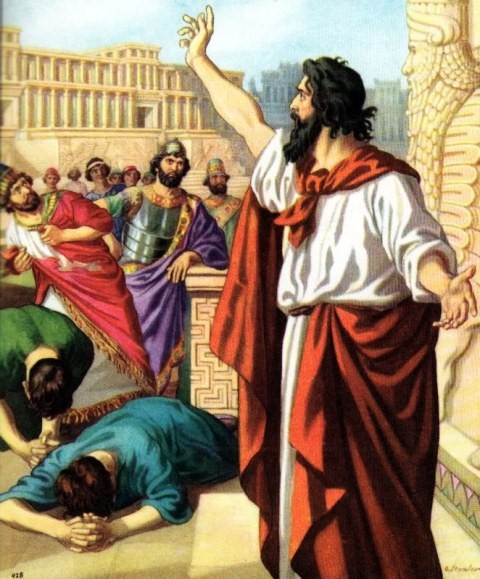

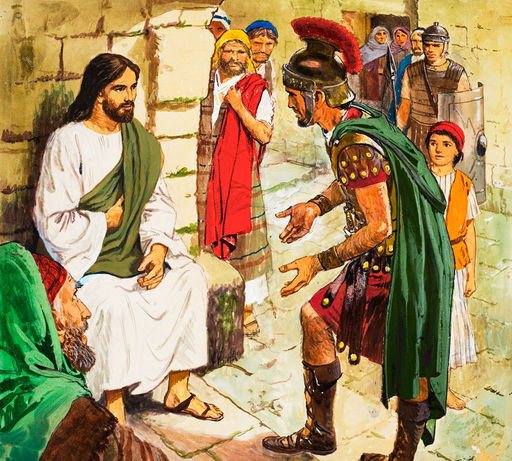
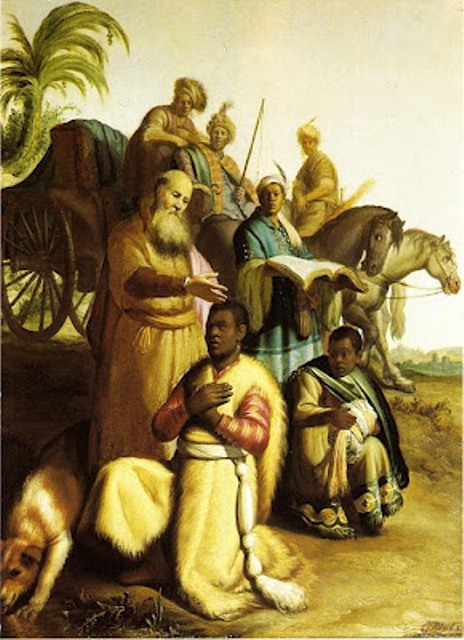
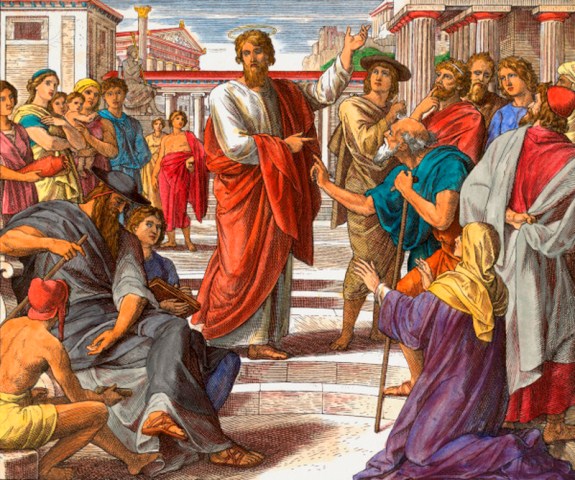




Leave a Reply